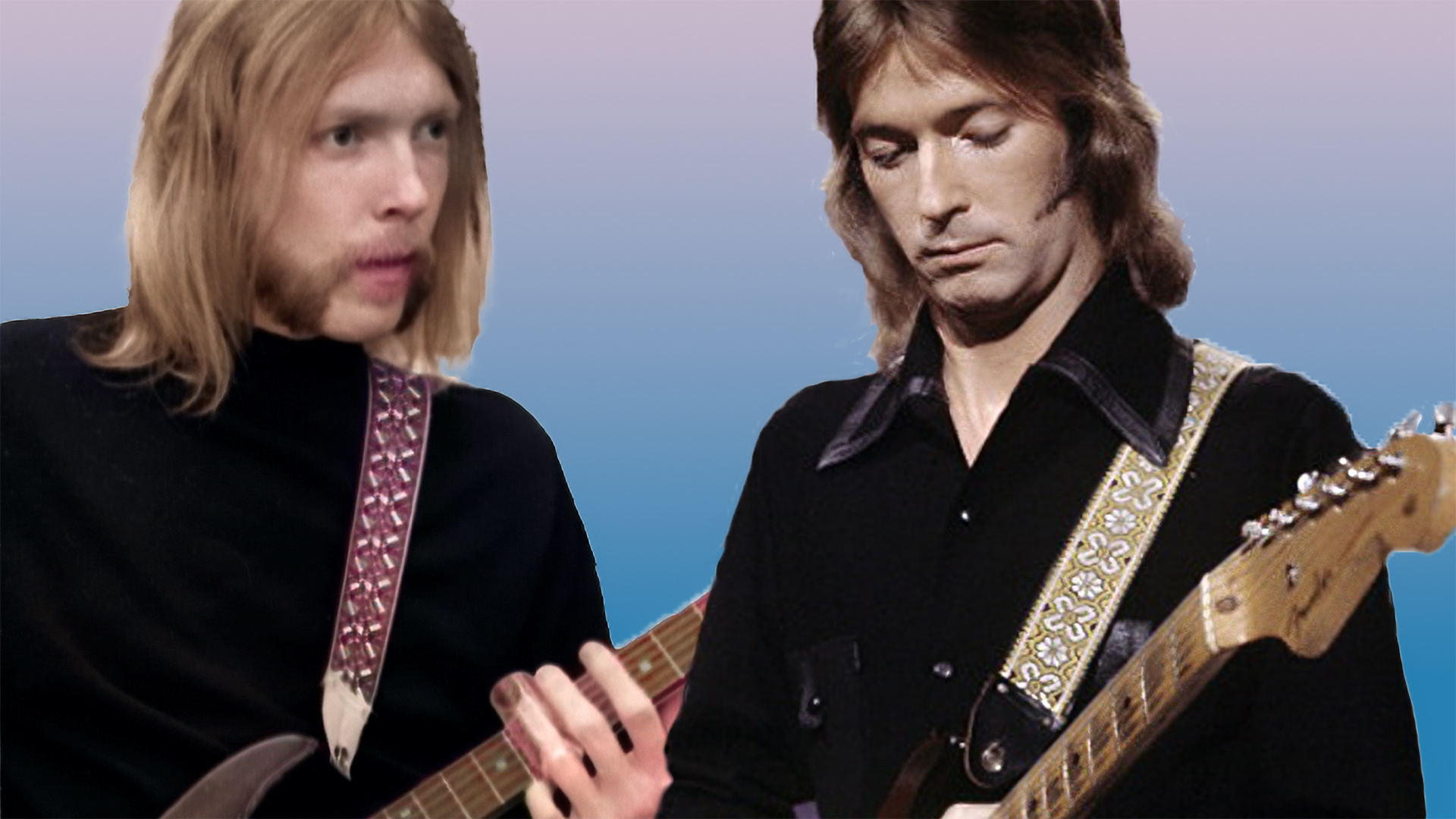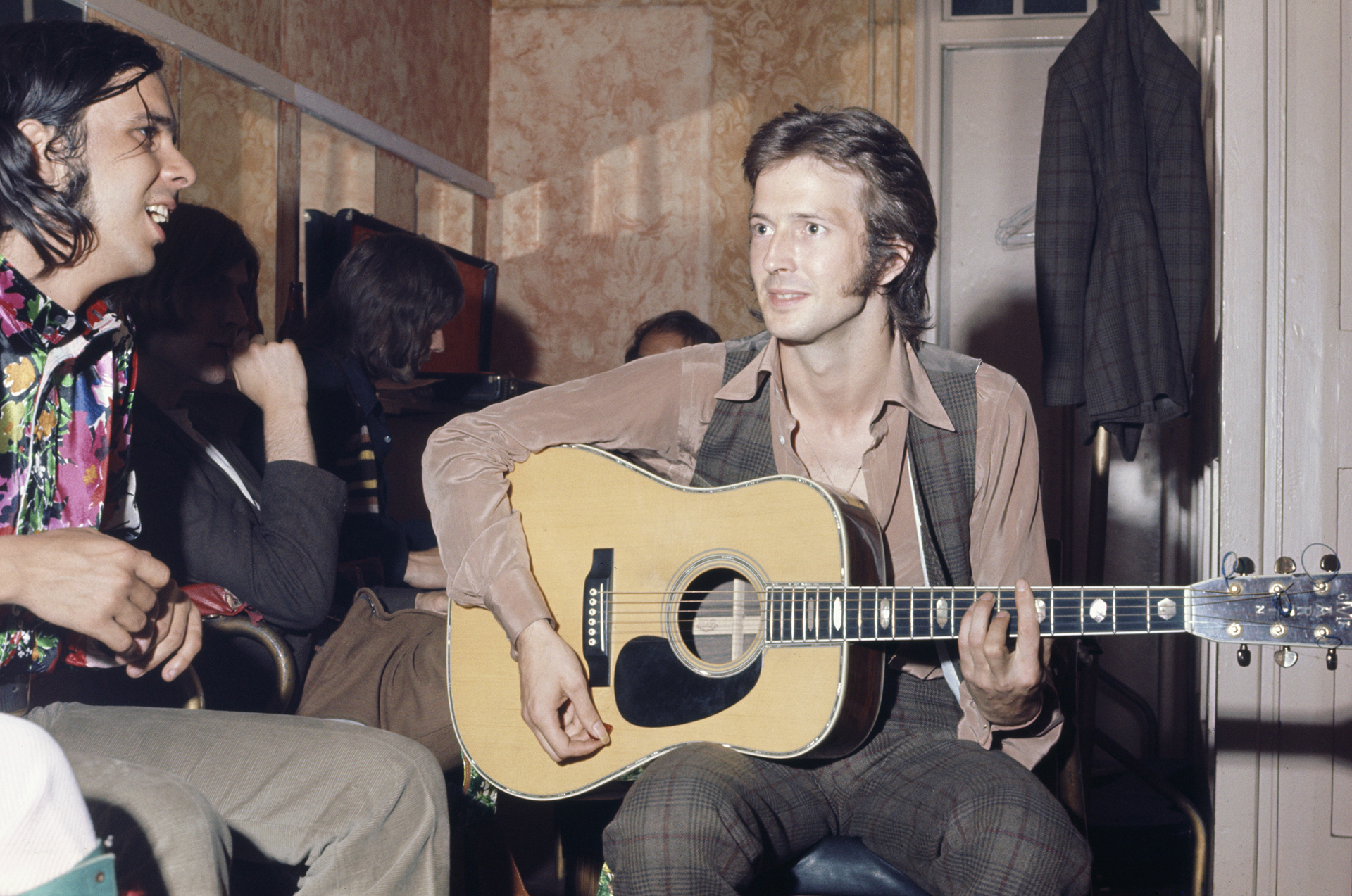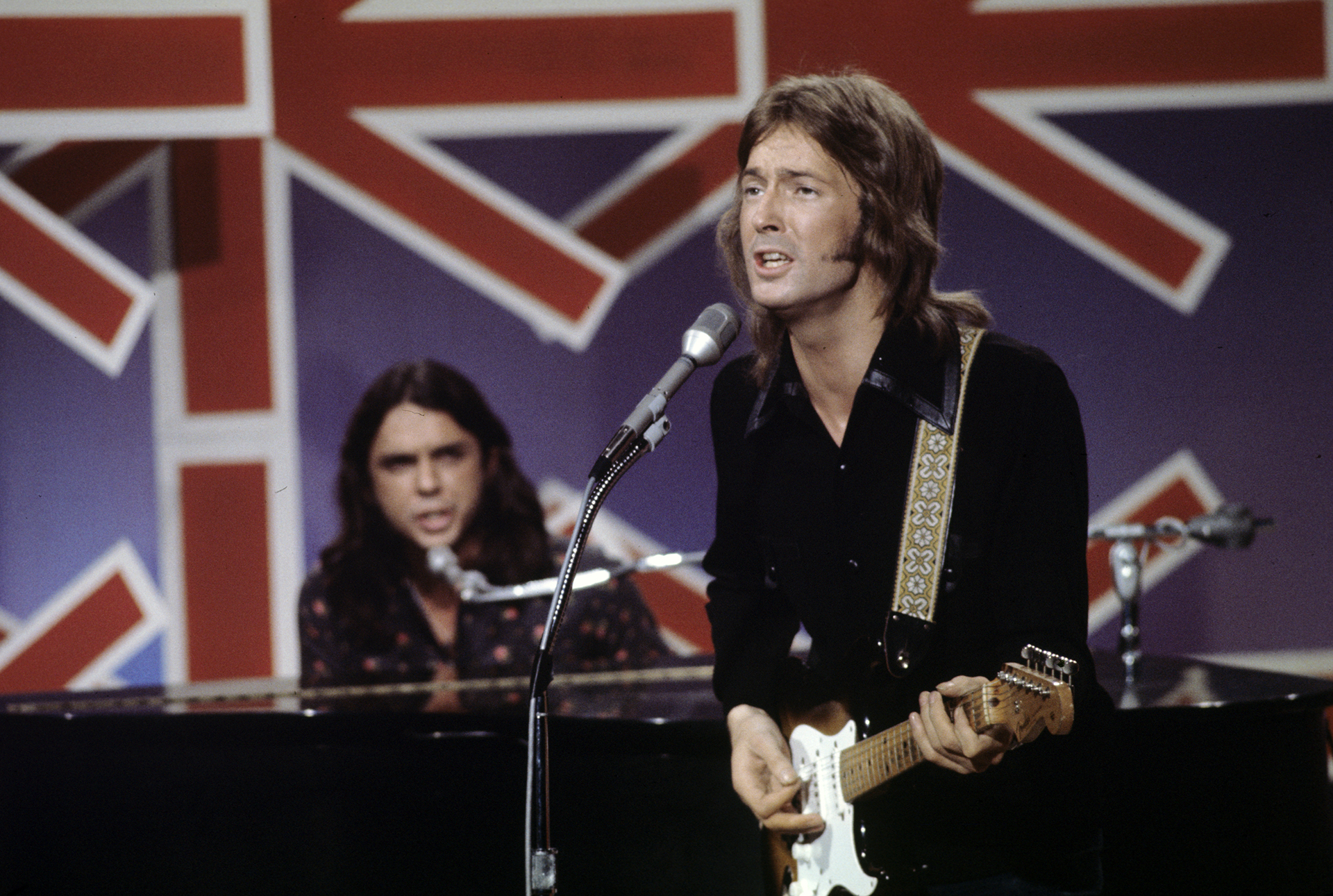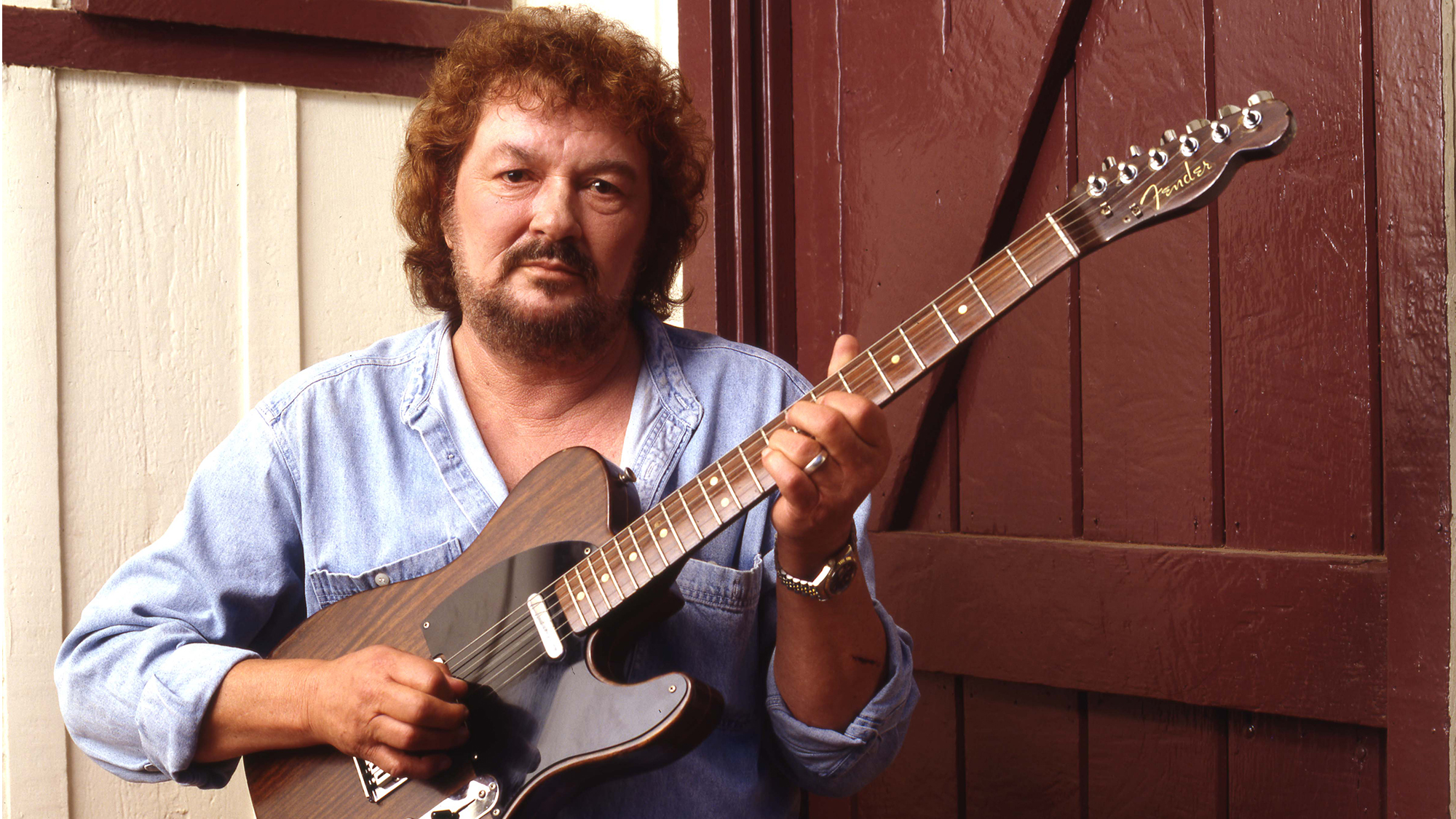"They were like two old, sage blues guys talking it over with a bottle of whisky, and playing the music, right there.” How Eric Clapton and Duane Allman's powerful guitar tandem embodied the blues tradition
The co-writer of many 'Layla' tracks, he sheds light on the symbiotic relationship between the two guitarists

Bobby Whitlock was all of 22 when he and Eric Clapton set about forming Derek and the Dominos in England during the summer of 1970. A talented singer, organist and guitarist from Memphis, Whitlock forged a friendship with Clapton unlike any other musician. Beyond serving as his partner in the group’s creation, Whitlock was Clapton's co-writer on many of Derek and the Dominos’ only studio album, Layla and Other Assorted Love Songs.
“‘I Looked Away’ was the very first one,” Whitlock tells Guitar Player. “And then ‘Anyday,’ and then ‘Tell the Truth.’ It felt really natural for us to write together, because we were friends first and we weren’t writing to make money or anything like that. We were just writing songs to have something we could play together.”
The two men would go on to perform on George Harrison’s All Things Must Pass album, lending their talents to — among other tracks — Harrison’s 1970 hit single, “My Sweet Lord.”
But it was with their own songs that they would make music history, along with bassist Carl Radle and drummer Jim Gordon, as Derek and the Dominos. Toward the end of August, the quartet settled into Criteria Studios in Miami to begin their fruitful sessions for Layla.
But as close as they were, Whitlock understood there was something deeper between Clapton and Duane Allman. The Allman Brothers Band guitarist was a late arrival to Derek and the Dominos. Although the Allmans weren’t famous at the time, Clapton knew Duane's guitar talents from his session work for Atlantic recording artists, in particular Wilson Pickett, whose 1969 cover of the Beatles’ “Hey Jude” featured Duane's blazing fretwork.
“I remember hearing ‘Hey Jude’ by Wilson Pickett and calling either [Atlantic president] Ahmet Ertegun or Tom Dowd, and saying, ‘Who’s that guitar player?’” Clapton said. “To this day, I’ve never heard better rock guitar playing on an R&B record.”
As it happened the Allman Brothers Band was playing a benefit concert at the Miami Beach Convention Center on the night of August 26, the first day of the Dominos’ sessions. Clapton and the band attended, after which Allman accompanied them back to Criteria for a jam. He never left.
Playing together — Clapton on Brownie, the 1956 Fender Stratocaster he’d purchased in 1967 during his tenure with Cream; Allman with his gold-top 1957 Gibson Les Paul — the two guitarists seemed to read each others moods and minds. “The sound of those two guitars together was perfect and complementary,” Whitlock says. “You just couldn’t have asked for anything better than that.”

As Whitlock relates, Clapton and Allman’s friendship was as symbiotic as their guitar playing. He witnessed many moments of camaraderie between them and recalls the profound impact it had on his own awareness of what they were accomplishing in the studio.
“One night after we had finished up recording for the day, we went on back to Eric’s room,” he remembers. “We were all drinking whisky and playing guitars, and I was listening to Eric and Duane talking about Robert Johnson, Elmore James and so on, and playing Bill Broonzy stuff.
“But I was standing there, leaning up against the wall and taking all this in, knowing that this is some really important stuff that’s going down, and I’m a witness to it. And these two young guys — we were all in our 20s — they were like two old, sage black blues guys talking it over with a bottle of whisky, and then playing the music, right there.
"These two young guys — we were all in our 20s — they were like two old, sage black blues guys talking it over with a bottle of whisky, and then playing the music, right there."
— Bobby Whitlock
“And it was then that I took the photo of Eric and Duane together that’s in the album gatefold. It was the one time I felt truly privileged to be there, at the right time, the right place, and in the right frame of mind.”
Whitlock was also present when Allman worked his magic on Layla’s title track devising the seven-note opening lick that is the song’s calling card. “Duane suggested it, and he came up with it,” Whitlock confirms. “We already had the song together, but it just started out completely different when we worked it up in England. And Duane said, ‘How about starting it this way?’”

Perhaps playing off the desperation in Clapton’s lyrics, Allman cleverly lifted the first half of the opening melody from Albert King’s “As the Years Go Passing By,” where the bluesman sings, “There is nothing I can do if you leave me here to cry.” Whitlock recalls that, originally, Allman played the line slower than it’s heard on the recording. “It was Eric’s idea to play it fast,” he says. “Duane played it, but Eric sped it up.”
For all the great music and communal spirit that arose from those sessions, Clapton at one point disowned the album. Speaking of the Dominos in 1985, the guitarist groused, “We were a make-believe band. We were all hiding inside it: Derek and the Dominos — the whole thing.”
But Whitlock saw the artifice as something else — a chance for a band led by a world-famous guitarist known to many as "God" to stand on its own merits.
“It’s great music. And it’s real. It became a success on its own, not because of promotion and not because of Eric Clapton.
— Bobby Whitlock
“It’s great music,” Whitlock says. “And it’s real. It became a success on its own, not because of promotion and not because of Eric Clapton.
“I remember when we were doing our tour of the United States. We were riding in a station wagon somewhere up in Minnesota, heading to a gig, and ‘My Sweet Lord’ comes on the radio. At the time, it was the number-one record in the country.
"And there we were, four guys in a car, heading to some little gig somewhere. I mean, we were the guys on a number-one record, and nobody even knew who the hell we were!”
All the latest guitar news, interviews, lessons, reviews, deals and more, direct to your inbox!
Christopher Scapelliti is editor-in-chief of GuitarPlayer.com and the former editor of Guitar Player, the world’s longest-running guitar magazine, founded in 1967. In his extensive career, he has authored in-depth interviews with such guitarists as Pete Townshend, Slash, Billy Corgan, Jack White, Elvis Costello and Todd Rundgren, and audio professionals including Beatles engineers Geoff Emerick and Ken Scott. He is the co-author of Guitar Aficionado: The Collections: The Most Famous, Rare, and Valuable Guitars in the World, a founding editor of Guitar Aficionado magazine, and a former editor with Guitar World, Guitar for the Practicing Musician and Maximum Guitar. Apart from guitars, he maintains a collection of more than 30 vintage analog synthesizers.
